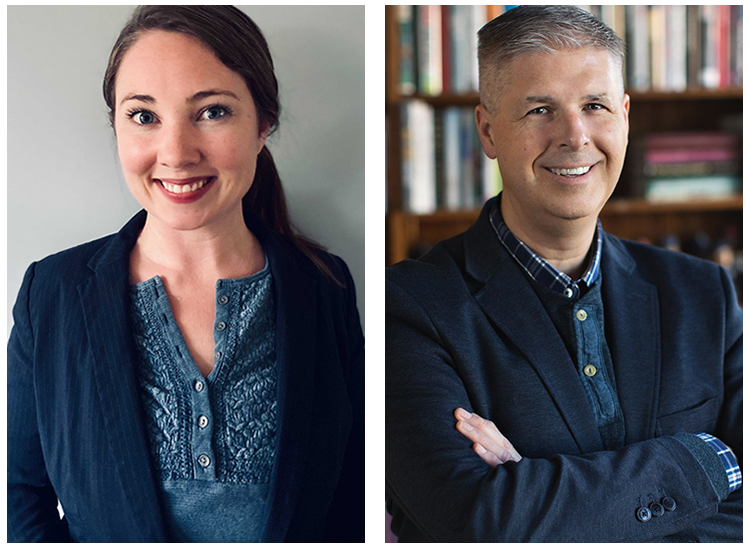Are Cars Here to Stay?
Host Abby Kinney, an urban planner in Kansas City, and regular cohost Chuck Marohn, Strong Towns founder and president.
Are cars here to stay? This week on Upzoned, Host Abby Kinney leads a spirited discussion on just such a provocatively titled post written on the Persuasion Substack by Alex Trembath.
Strong Towns Board Member and Fellow John Reuter.
For Kinney and her guests, the summary or subtitle, “Real progress on climate change will require innovations that some on the left won’t like” was the poke in the ribs that got the conversation rolling and moods shifted.
Trembath writes that fossil fuel manufacturers and automakers are not responsible for the appetite Americans have for commuting to suburban developments. The author criticizes the urbanist and climate movements for not adequately reckoning with the enduring appeal of suburbs and car commutes.
Upzoned guest John Reuter, a Strong Towns board member and fellow, spent the last decade working in environmental policy and politics. Reuter gets the conversation on Trembath’s article rolling by observing that in the progressive, left-of-center climate and urbanist movements in America, many are obsessed with investing in the electrification of vehicles.
While electrifying cars may be an important transition, Reuter is more sanguine about real solutions needed by those movements: Namely, to reduce the number of miles which are driven in America each year. “There is an obsession with electric vehicle production right now,” Reuter says. “That’s where all the ‘gas’ is right now in the national environment.”
A reliable common ground for the left and the right in federal budgeting is to build more highways, subsidize more suburbs, and re-tool the auto industry to build electric vehicles. “The idea we should build more stuff is one of the last remaining political consensus (points) in DC,” Reuter adds.
Charles Marohn, Strong Towns president and founder, finds a difficult contradiction in the choices made by the most progressive left of center places to prioritize the creation of walkable cities and resilient neighborhoods. Contrasting with those stated goals, are actions chosen at the federal level to fund new highways, new bridges, and more automobile infrastructure with a $1.2 trillion infrastructure spending bill.
All the investments those in the center and left are making on new roads and bridges “is somehow mitigated in their minds by the idea that electric cars will be driving on them,” Marohn says. “Maybe the electrification of automobiles is coming soon…but we are going to be driving everywhere because that is where we are investing.”
The suburban development pattern requires too much subsidy to continue in its current form, Reuter says, so the federal government should stop doubling down on funding infrastructure.
That consensus is not without long-term harm, primarily to those living in the suburbs. “We know (the suburbs) require massive levels of government subsidization, massive amounts of infrastructure, massive amounts of roads,” Reuter says. It’s money which can’t keep being spent. “It’s awful to be advising people to go and live in places where their services are going to slowly, over their lives, degrade, where their quality of life is going to decline, where their homes are going to lose value.”
Both Kinney and Reuter agree Trembath miscalculates by saying most Americans choose suburban lifestyles. Most people aren’t choosing to live in the suburbs, people are being pushed out of cities because they can’t afford to live in them.
Marohn reminds the conversation that Americans to the right of center also fall into an infrastructure trap by justifying the lifestyle of their suburban constituents. “They start with the premise that suburbs are good and a commuting lifestyle is good then justify backwards….people on the right, including this author, are going to have to come to grips with the idea that the commuter version of America…is not a viable way to run the economy.”








In this episode of Upzoned, host Abby Kinney is joined by Ryan Johnson, the builder and resident of the first car-free neighborhood built from scratch in the U.S.: Culdesac Tempe.